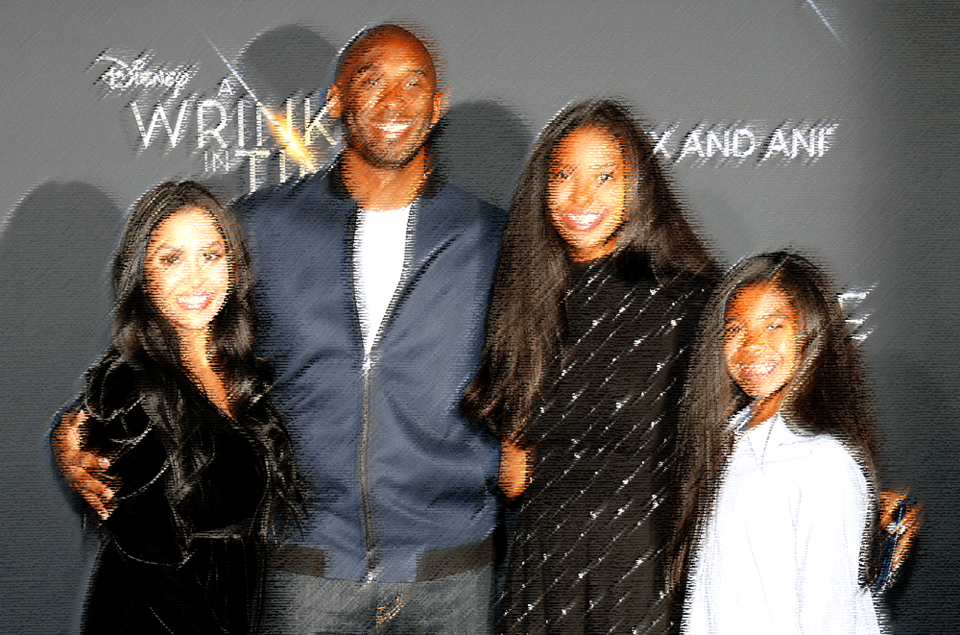Celebrity, and mourning people we don't know
I’m not an authority on celebrities, living or dead. I checked a list of the 50 “most famous” who have died and recognized the names of ten. Had the list included James Dean, Marilyn Monroe and Elvis Presley I’d have got 13.
But I have heard of the most recent addition, Kobe Bryant, though I’d never watched him play the game he excelled in.
On his death, social media outlets erupted with the inevitable tributes. We experienced grief on a global scale and watched another face being etched into the side of Mount Olympus. As is the way now, a celebrity death triggers fulsome accolades and a dust storm of universal mourning, with immortality secured when it settles.
I wonder sometimes if these outpourings have less to do with the victim (one of nine in this case, including his 13-year-old daughter) than with ourselves. What drives us to grieve publicly, at times almost competitively, for the deaths of famous people we’ve never met?
(And this time there’s a fly in the ointment. More on that later.)
 The grief stakes are raised when celebrities die before their time. It’s an odd phrase that, considering no one is guaranteed a specific term of life. My brother died when he was seven, countless children die even younger, and families are pained by the thought of all the years not lived. Death, like life, is unfair. But when a David Bowie, Prince, Amy Winehouse, or Michael Jackson die with years, even decades, yet unspent, we grieve more loudly.
The grief stakes are raised when celebrities die before their time. It’s an odd phrase that, considering no one is guaranteed a specific term of life. My brother died when he was seven, countless children die even younger, and families are pained by the thought of all the years not lived. Death, like life, is unfair. But when a David Bowie, Prince, Amy Winehouse, or Michael Jackson die with years, even decades, yet unspent, we grieve more loudly.
Should a celebrity die violently, the maelstrom of grief increases. The sudden deaths of John Lennon, John Kennedy Jr., Princess Diana, and now Kobe Bryant trigger firestorms of lamentation that are overwhelming. And, again, global.
Two nights after the helicopter crash, the CTV National newsreader opened with, “The world is still trying to come to grips with its grief over the death of Kobe Bryant.”
While that was surely, and sadly true of his family, who lost him and their daughter and sibling in the crash, I’m not sure about the world.
The man was a superstar in the game he played. He gave immense pleasure to millions of basketball fans, whether they supported his Lakers or not. He inspired tens of thousands of kids to want to be just like him, and he contributed significantly to worthy institutions from his accumulated millions. That he occupied a special place in peoples’ lives is undeniable. Not as special as the place he occupied in the lives of those who actually knew him, and nothing like the place he and his daughter had in the hearts of their family, but still.
His adoring fans will carry on with their lives sooner than his friends will. As for his family, who can possibly know how long it will take for them to resume a normal life, if indeed they ever do? They, like any family mourning a tragic loss, deserve our real sympathy.
And like any grieving family, they’ll face a whole new challenge when the memorial service is over and the media, and the fans have moved on to the next star that falls out of the galaxy.
Real grief never goes away.
What I find interesting about the posts on social media from those who follow basketball, and strangely enough, from many who don’t, is how personally they take Kobe Bryant’s death. It’s like, “we’re suffering here and we want everyone to know.”
There is almost a kind of pecking order of who among his fans has lost the most by his death.
T. S. Eliot wrote a century ago about the difference between “human feeling and the human illusion of feeling.” I’m still processing that one.
I remember feeling shocked when, aged 14 and on my way home from school, I heard someone on a busy street corner say that President Kennedy had been shot. By the time I got home Walter Cronkite was already choking up as he told the world that the President was dead.
I was numb. I’d never met the man but even at 14 I felt the loss of someone special.
He was the president who got me interested in politics and history, and also in the spoken word because he was good at it. When he died I missed him and I grieved.
I suppose if we had social media back then I’d have shared my feelings online. Instead, over that weekend, I watched as another celebrity got shot—Lee Harvey Oswald, while in custody in a Dallas police station—and on the Monday I listened to my history teacher read to us William Faulkner’s Nobel Prize speech. Faulkner spoke about the need for hope in a despairing world, about courage, honour, pride, compassion, sacrifice and the strength to prevail.
He sounded like Kennedy.
The list of movie stars and pop singers and professional athletes who’ve died since that time is long, and over the decades I’ve observed a steady rise in the glare and clamour that accompany their passing. While it’s a relatively new phenomenon, it assuredly consoles families like the Bryants to know that he meant something to millions of people, many of whom have petitioned for his image to become the new logo of the NBA. Is there anything wrong with that? I don’t believe there is. Neither does his widow, Vanessa Bryant, who has thanked the world for its support.
But there are those who do find something wrong here, people who speak for the tens of thousands of victims of sexual abuse. They reminded us that Kobe Bryant eventually acknowledged an accuser’s assertion that their sex was not in fact consensual; a settlement was reached and the case dismissed. Consequently, many believe he should not be celebrated as a legend and national hero. A journalist was briefly suspended by the Washington Post for tweeting a link to the original story—without adding comment of her own—within a day of the crash (a suspension widely condemned by other journalists, even from within the Post).
So what are we to think? Who’s right? Can there even be a right view and a wrong view in an issue as complicated as this?
Christopher Hitchens once wrote, “‘Views’ don’t really count. It matters not what you think but how you think.” In other words, how did you arrive at what you think.
The trouble with certainty, he went on to say, is that it removes the need to reconcile incompatible ideas. It exempts us from the pain of changing our minds. Certainty keeps us safe in our separate silos.
Maybe in time, once Kobe Bryant’s family are left to nurse their private grief, hopefully more consoled by his supporters than distressed by his detractors, and before he himself disappears in the undertow of the next wave of public grief, we can reflect on what we really think. ♦



